Hezbollah’s import of Iranian oil helped break Lebanon’s energy monopoly: Report
Lebanon's energy crisis stems from a past decision by the Beirut government to allow private companies to monopolize and set prices in the strategic oil sector, a report says, adding that a recent move by the Lebanese resistance movement Hezbollah to import fuel from Iran is meant to eliminate the "notorious" monopoly and improve the livelihood of people in the crisis-stricken Arab country.
According to a report by The Cradle news website, which describes itself as a journalist-driven publication covering West Asia, Lebanon's energy crisis is the consequence of an entrenched corruption and systematic monopoly by 14 private companies -- some of which directly owned by Saudi citizens -- that have been running by the state’s political elite for more than 30 years.
The online publication said since the 1975–1990 Lebanese Civil War, certain political figures agreed to share spheres of influence and state resources by distributing monopolies to one another and between 1992 and 1998, the oil cartels managed to monopolize the import of oil by establishing companies for their trusted associates.
“Today, 14 companies in Lebanon control both the import of oil derivatives and the distribution market. They also own half of the 3,100 gas stations in Lebanon and control the daily price of fuel,” the report said. These companies control 70 percent of local market production, while just two Lebanese state facilities take the remaining 30 percent.”
The Cradle website said the oil cartel in Lebanon is protected under the country’s nefarious monopoly law and is working under an agreement between companies to share the market and organize competition to safeguard their shared interests.
“Consequently, when there is risk of losing profits gained over the decades of this corrupt system, they withhold supplies of oil derivatives from the Lebanese market, causing the crippling shortages witnessed on a regular basis in Lebanon,” the report added.
The website stressed that the cartel has the ability to exacerbate the energy crisis in Lebanon by halting domestic supplies with sufficient quantity to create shortages and confusion.
Uniterminals, Coral Oil, MEDCO and Cogico are among the 14 oil companies that The Cradle says control the Lebanese market.
The report said the owners of these companies are themselves the oil traders and constitute the most powerful cartel in Lebanon, stressing that, "no one, not even state agencies or the Lebanese Ministry of Energy, is able to control or direct them."
The Lebanese officials trying to break the monopoly or demand transparency in the strategic energy sector have either been arrested or imprisoned.
“When a monopoly of a prized commodity is controlled by a well-entrenched, highly functional mafia whose members also happen to be the people running state affairs, who then has the power to protect the state from crimes committed against its critical resources? And what event might conceivably shake the foundations of this system and crack it open?” the report asked.
The online publication said in response that, “The recent move by Hezbollah to import Iranian oil through Syrian territory may be the first signs of a fracture in Lebanon’s notorious energy monopoly.”
The Cradle said Lebanon’s political elite objected to the Iranian fuel because it would break the cartel’s oil monopoly and its price-setting powers.
“As Hezbollah noted at the outset, the price at which Iranian fuel will be distributed to major Lebanese institutions, hospitals, and regular citizens will be lower than the price set by the oil cartel companies,” the report said. “This cost discrepancy will swing the door wide open to serious questions about the size of the profits reaped by private companies in the absence of a Lebanese state intervention.”
Last month, the first tanker trucks carrying Iranian fuel arranged by Hezbollah arrived in Lebanon, with the resistance group declaring that it had broken the "American siege."
Hezbollah Secretary General Sayyed Hassan Nasrallah said the Iranian fuel shipments would be distributed free of charge to institutions, including state hospitals, nursing homes, orphanages and the Red Cross.
“[Hezbollah] is not looking to make a business out of this but wants to help ease the people’s hardships,” the Hezbollah secretary general said, adding that the rest of the Iranian fuel would be sold “below cost” to bakeries, private hospitals or companies that run private generators.
Lebanon has been mired in a deep economic and financial crisis since late 2019. The crisis is the gravest threat to the country’s stability since the 15-year civil war ended in 1990.
The economic and financial crisis is mostly linked to the sanctions that the United States and its allies have imposed on Lebanon as well as foreign intervention in the Arab nation’s domestic affairs.

Israeli soldiers stole ‘mountains’ of cash and gold from Gaza, Lebanon, and Syria: Report
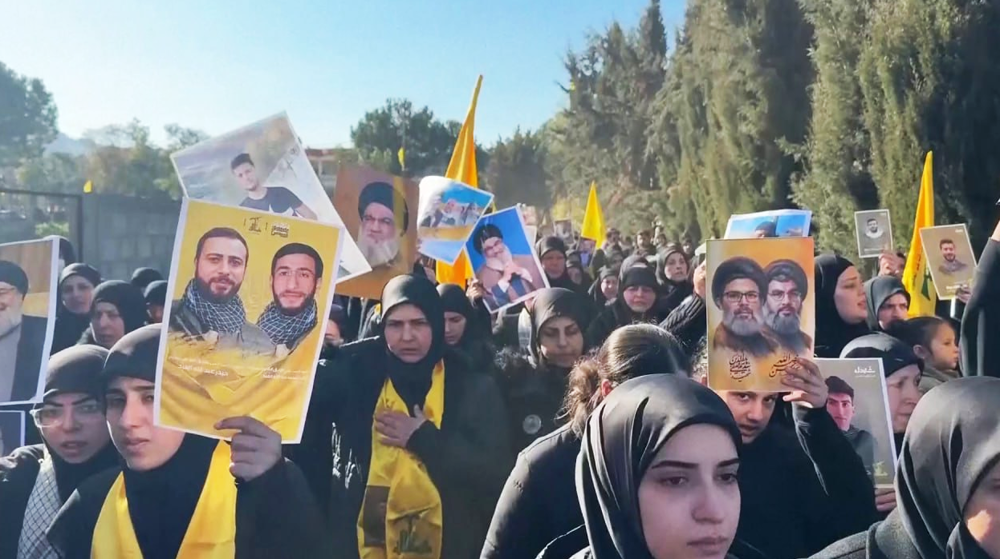
Thousands of mourners bid farewell to 120 Hezbollah fighters martyred in Israeli invasion
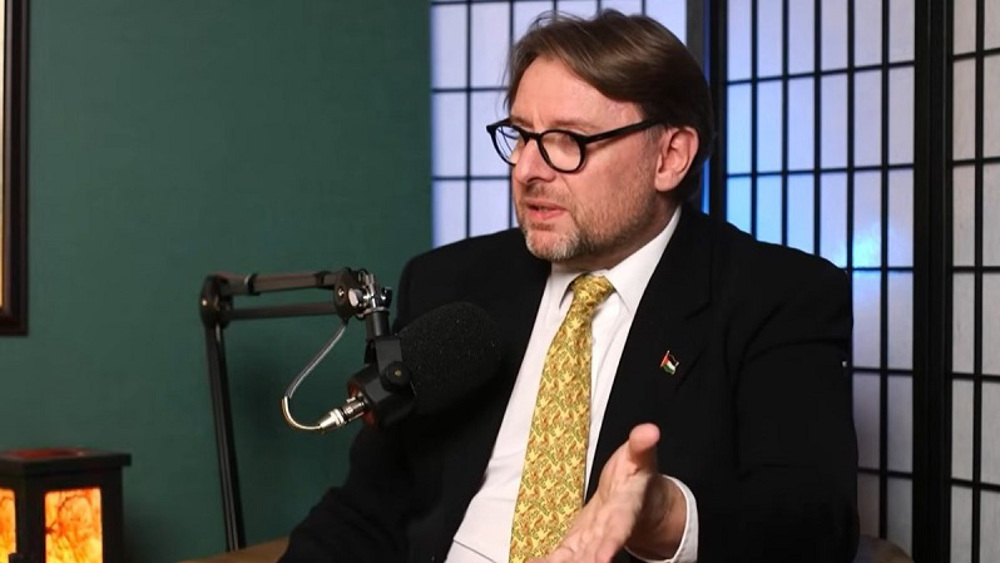
Abuse of UK Terrorism Act
Iran releases 1st video of Israeli-linked ship seized last April
Israel threatens to attack city near Syria’s capital
We won’t let Netanyahu sacrifice captives: Families
Egypt reaffirms ‘unwavering support’ for Palestinian cause ahead of emergency Arab Summit
VIDEO | Press TV's news headlines
Iran to keep current subsidized exchange rate in next year's budget
Iran will change military tactics, techniques based on threats: Top Cmdr.
Israeli bulldozers demolish homes in West Bank; Hamas urges UN to stop 'war crimes'


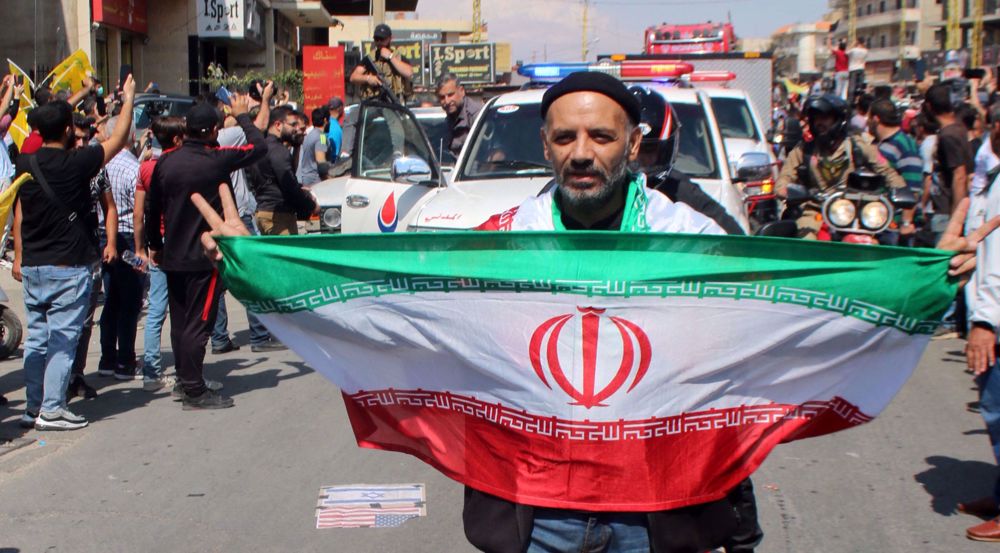
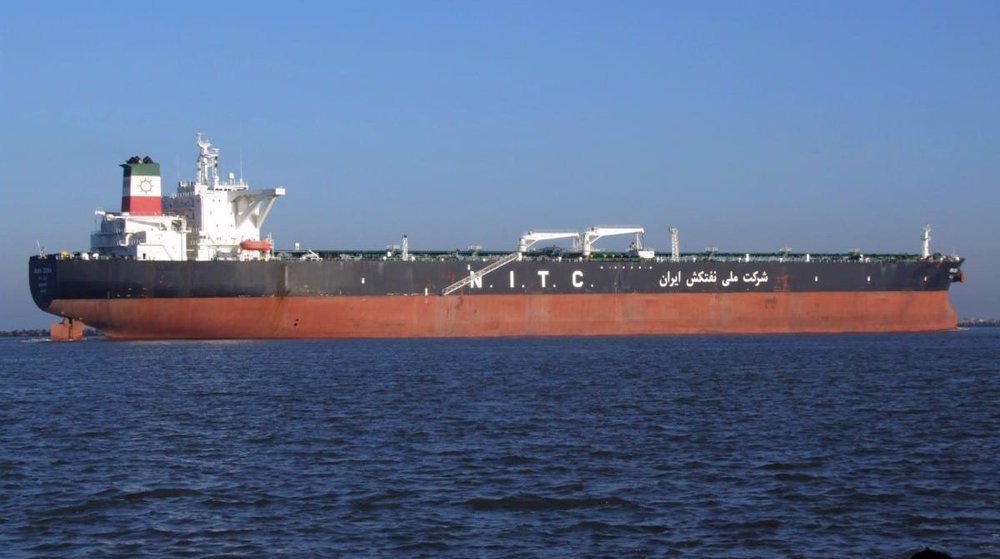
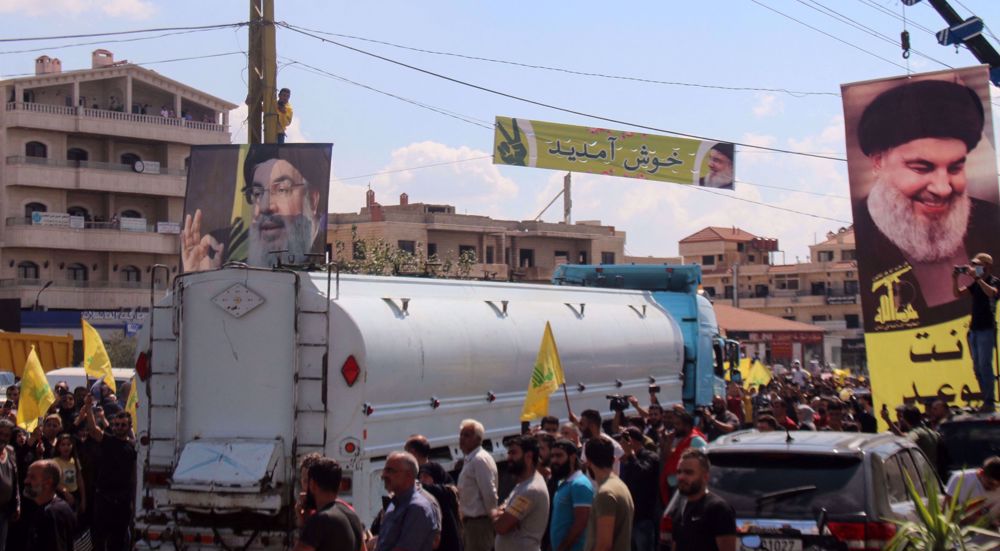




 This makes it easy to access the Press TV website
This makes it easy to access the Press TV website